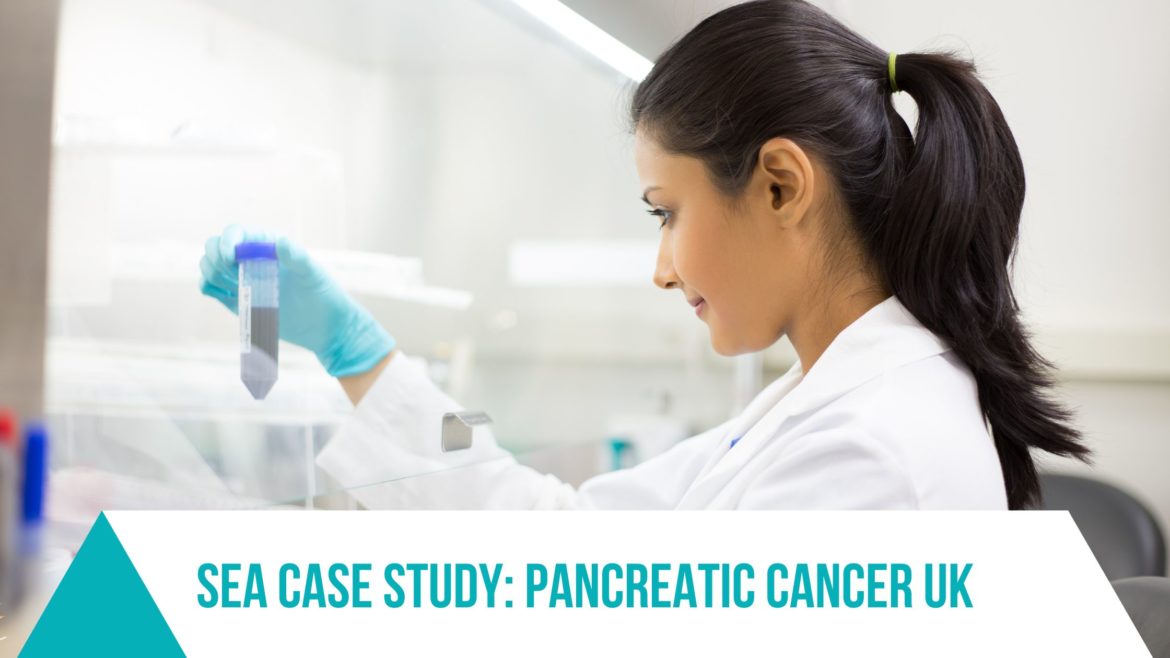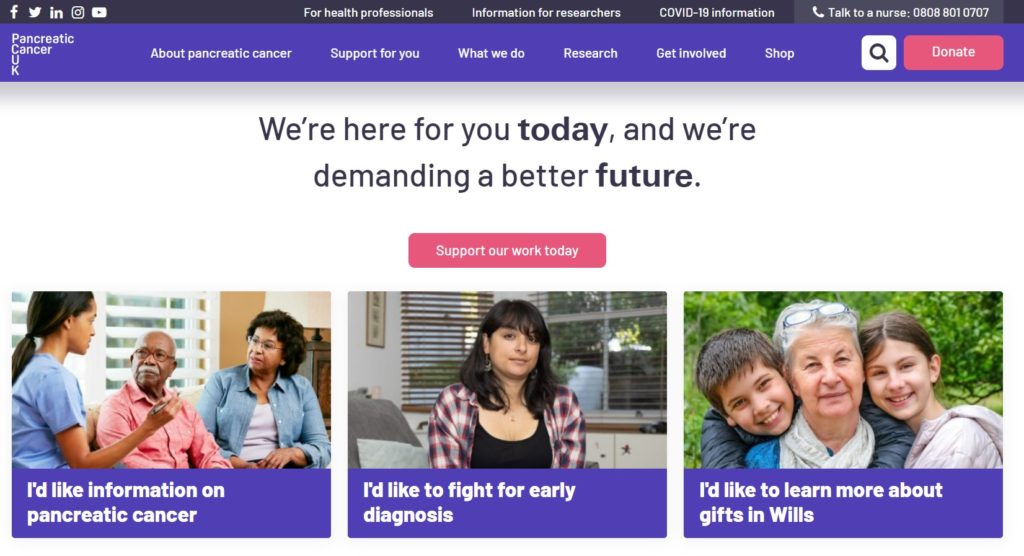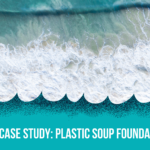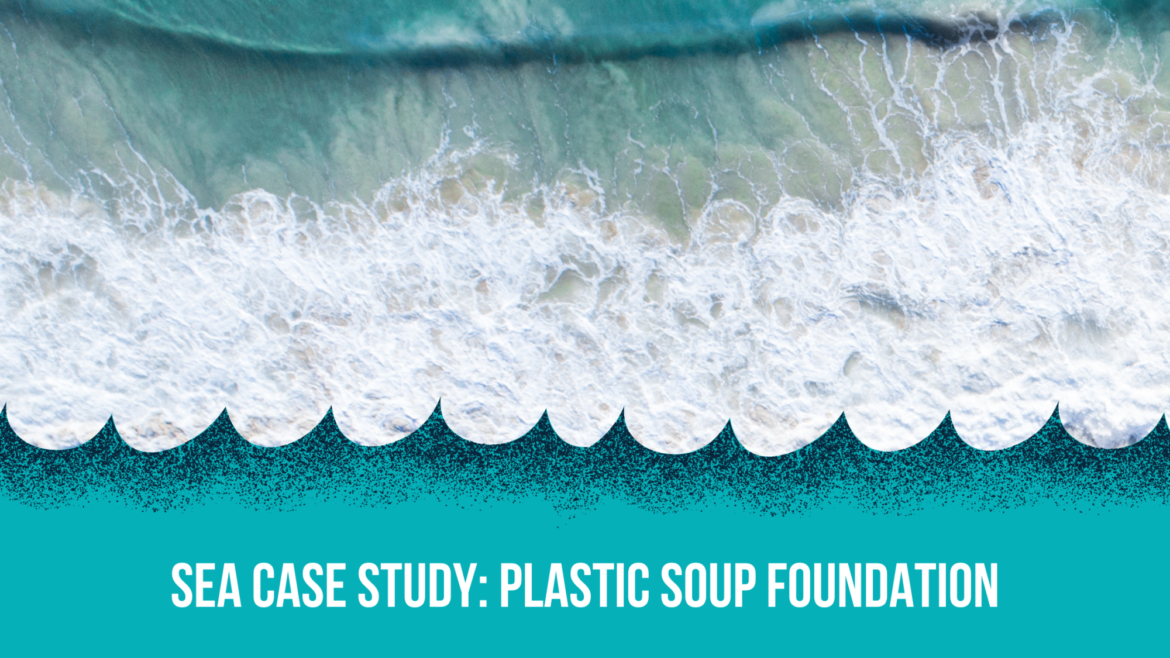
PCUK: early diagnosis breakthrough – Paid campaign
Pancreatic Cancer UK reached out for assistance with setting up paid Google ads to support an appeal campaign for early diagnosis breakthrough of pancreatic cancer. This was the second time ContentOpia created a paid ads campaign for PCUK.
The objective of the campaign was to get as many people as possible to sign a petition and support PCUK in their work towards finding an early test for pancreatic cancer.
As such, paid Google ads were a good option to increase traffic to the website and reached out to a bigger and potentially new audience.

The Challenge
Due to the nature of the organisation and their work, one of the main challenge was not to compete with their other paid ads related to similar keywords. Indeed, with both a paid Google ads and an ad Grants accounts, the organisation already had several general campaigns running all year round on similar keyword sets.
In order to attain both a good CTR and CVR, a good balance had to be found to keep the audience relevant and focused, while targeting keywords able to bring a maximum traffic.
The client was made aware of the challenges and potential risks to this campaign before deciding to go ahead with the setup of the ads.

The Approach
Given the nature of the campaign and the goal we were trying to reach, it was decided to focus on text ads only, both on the search and display networks.
As pancreatic cancer can affect anyone, no matter their age, sex or gender, it was decided to keep the audience open and to focus on keyword targeting rather than audience targeting. The only limit given was a location one (UK only).
After carefully reviewing the client’s brief and the key messaging they wanted to focus on, the first step taken was to undergo a thorough keyword research. Keywords that were relating the closest to the campaign included ‘test for pancreatic cancer’ or ‘early diagnosis test for pancreatic cancer’. For these keyword sets, phrase match and exact match were selected.

Other keywords such as ‘early diagnosis pancreatic cancer’, ‘early detection of pancreatic cancer’, or ‘early signs of pancreatic cancer’, turned out to be popular ones and lead to quite a lot of searches per month. However, they were relatively broad ones and did not directly relate to testing, which was the main focus of the campaign. After careful consideration, it was decided to add these broader keywords to the campaign in order to reach out to a bigger audience. To make sure the CTR and CVR would be good on these type of keywords as well, a special focus was put on the text of the ads themselves. It is indeed the best way to reach out to as many people as possible, while making sure the messaging of the ads is clear enough to automatically ‘filter’ the users willing to click on it.
Our team recommended to start the campaign with a small budget of £10 per day, in order to make sure the organisation would not overspend. It was agreed to review the budget after two weeks of the campaign being live, and to readjust it as needed.
The campaign was monitored daily for the first week and adjustments to the setting and keywords were made when necessary.
The Results
After only two weeks, the campaign had shown great results and were to the clients expectations.
The click-through-rate (CTR) reached an average of 21%. The campaign brought over 800 visitors to the website. The conversion rate (CVR) reached a stable 10%.
Additionally, direct and organic traffic also increased on the whole website, as it doubled in a matter of days.This highlights the positive effect paid traffic has on all other channels, as people subsequently tend to go back to the website directly or organically.
An excellent result for our client and a win for our team!



